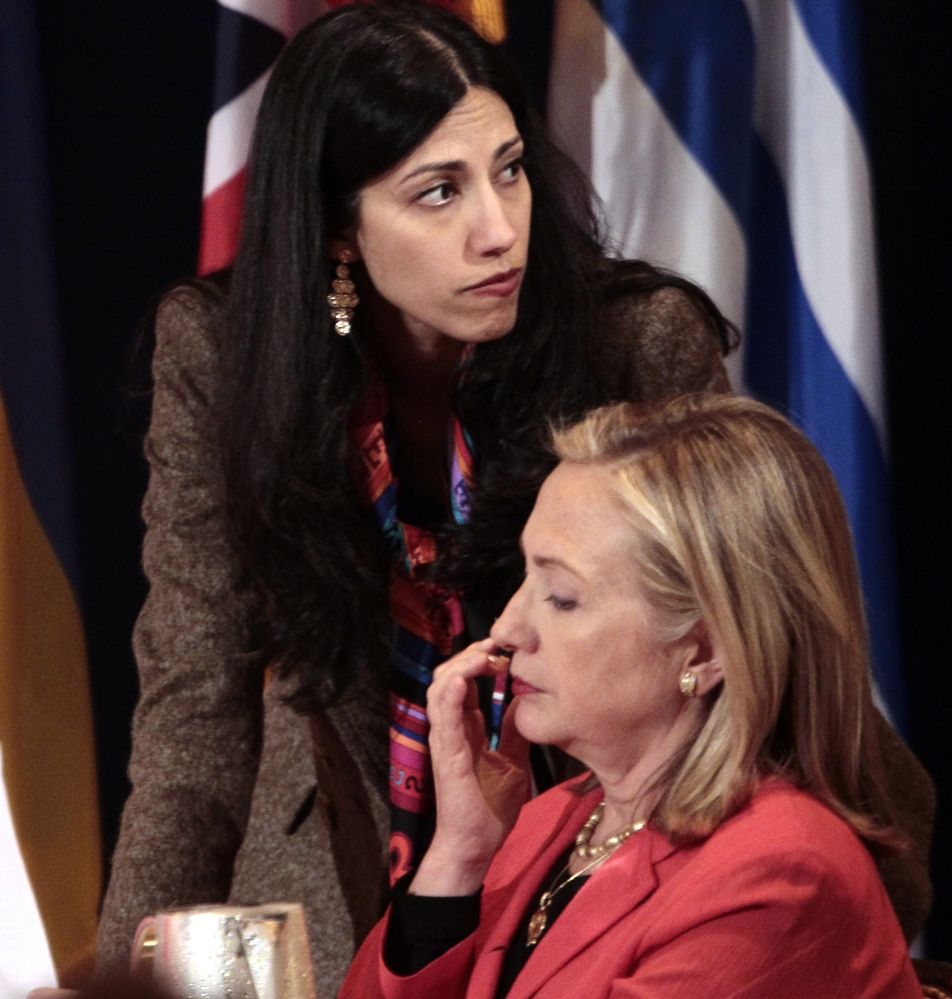Problems related to Hillary Clinton’s private email setup got in the way of State Department business on at least one occasion, prompting the then-secretary of state to miss a call with a foreign government official, a top Clinton aide testified under oath this week.
The aide, Huma Abedin, questioned as part of a public records lawsuit brought by the conservative legal group Judicial Watch, said she and her boss were “frustrated” by the episode in which Clinton’s email messages were being blocked by spam filters.
As a result, Abedin recommended that Clinton consider getting a government email account that she could use alongside the personal system –an alternative that Abedin said was never implemented.
“She wasn’t able to do her job, do what she needed to do,” Abedin said, according to a deposition transcript released Wednesday.
Abedin’s testimony came amid a stream of other revelations regarding Clinton’s emails that have continued to dog the presumptive Democratic presidential nominee as she tries to put the controversy to rest.
Using a private email server for official and personal business was Clinton’s decision, Abedin said, according to the transcript.
Abedin answered questions during a 5 1/2-hour deposition Tuesday at her attorneys’ law firm.
Abedin, Clinton’s then-deputy chief of staff as secretary and now vice chair of her Democratic presidential campaign, told lawyers with Judicial Watch that, to her knowledge, Clinton never had an official account during her time in the Senate nor a 2008 presidential campaign account.
“From my understanding, I just saw it as continue doing what she was doing before she arrived at the State Department” and served from 2009 to 2013, Abedin said. “She had always had a personal device since she had started using email. That’s what she used when she was in the Senate.”
Abedin is the only other State Department employee known to have an account on the server.
Abedin testified that she was never asked to respond to a public records request during her time at the State Department and did not consider how emails sent on a private account might be searched in response to requests.
In 2015, two years after leaving office, Abedin testified that she was asked to turn over all federal records in her possession to the State Department. In response, she handed over a BlackBerry, two laptops and some paper files to her attorneys and asked them to search the contents and turn over all State Department-related material to the agency.
The State Department has, in turn, been releasing those records to Judicial Watch in batches over time. The process is still underway, but Judicial Watch said Wednesday that it had so far located 127 of Clinton’s emails in those records that had not been among those Clinton herself gave to the State Department in 2014.
The new findings raise questions about the process her lawyers used to sift her work correspondence from personal notes she said she deleted.
Send questions/comments to the editors.


